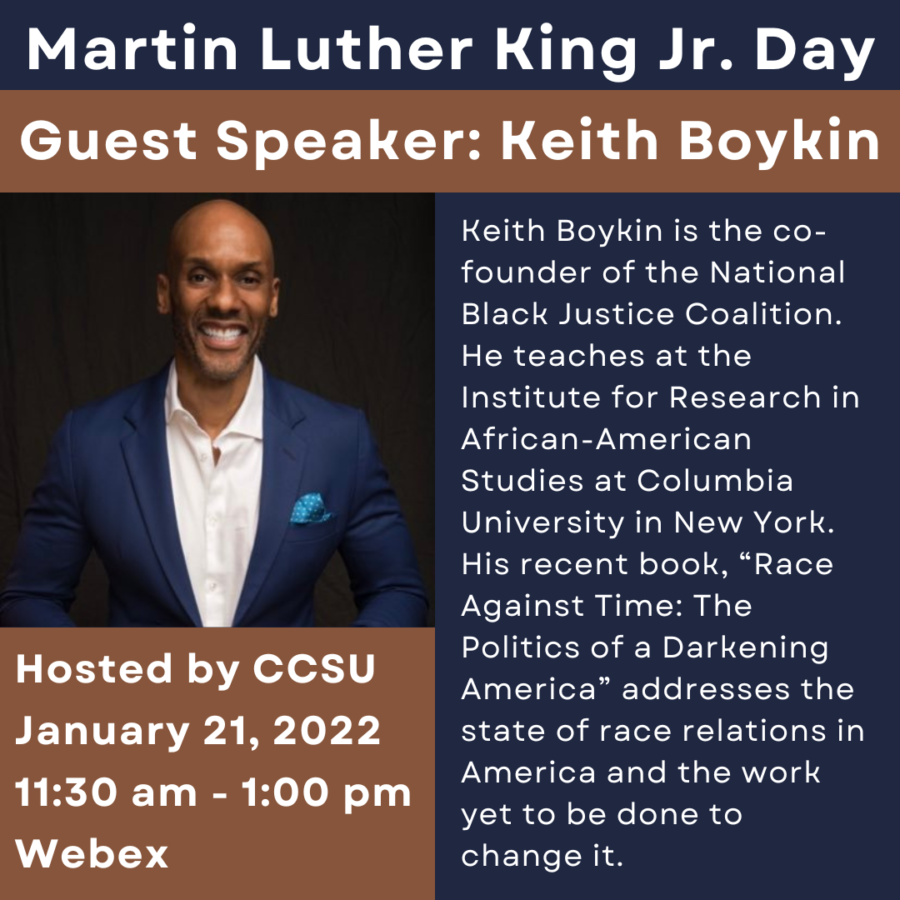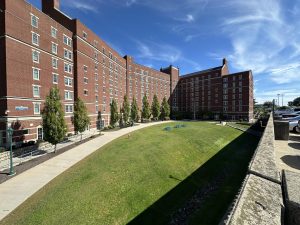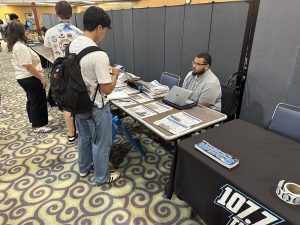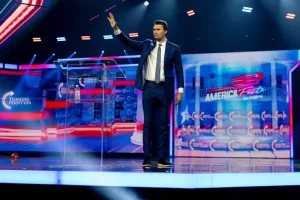CCSU Hosts MLK Day Forum
February 2, 2022
Central Connecticut State University hosted a virtual forum on WebEx in celebration of the life of Dr. Martin Luther King Jr. on Friday, January 21.
CCSU President Zulma Toro joined the ceremony with opening remarks, expressing her desire to return to an in-person, natural setting for next year’s celebration as well as her feelings on how far our society has come since Dr. King’s iconic speech.
“We have made great progress towards the society that Dr. King imagined… there is still much work to do to achieve his dream,” Toro said.
President Toro then passed it over to Dr. Stacey Miller, Vice President of CCSU’s Office for Equity & Inclusion, who introduced guest speaker Keith Boykin to the panel. Boykin is an author, activist, CNN national political commentator, and one of the co-founders of the National Black Justice Coalition.
Boykin used numerous examples from his life where race played a defining role, including his times at Dartmouth University and Harvard University. “Race has been a part of my life from the very beginning, and it has been a part of American life from the very beginning as well,” said Boykin.
Boykin found himself in multiple scenarios where he was fighting for equality, including an instance where he asked the dean of Harvard about the lack of racial diversity across the faculty and the dean refused to entertain such a question. This was eventually brought to Massachusetts’s Supreme Court as the Harvard Law School was sued for discrimination. Boykin explained that while they lost the case against the school, they did win in the court of public opinion.
He elaborated on why the dean of Harvard was so reluctant to answer his fair questions about the diversity on his campus. “It can be uncomfortable for people in power to have that conversation when they don’t want to have that conversation”.
Boykin also told his story about coming out as a gay man to his family and friends, reiterating how surprised he was to see their acceptance of him. At the same time, he was saddened by people using their religion to advocate against his freedom. Despite that opposition, he was proud that many of those around him were so accepting of who he truly was.
Boykin expressed that one cannot simply look at the issue of race and ignore the issue of gender, ableism, or sexual orientation, stating that we, as a collective, should not have to ignore or deny one part of our identity to embrace another part of it. “It does not matter which group is first oppressed or most oppressed,” Boykin said. “What matters is that no one should be oppressed.”
Boykin then went on to share what he called the “hierarchy of oppression,” including pivotal moments in the numerous fights against oppression like the Civil Rights Act of 1964 and the Voting Rights Act of 1965. These historical events were shown as an example that even the presence of laws is not enough to limit the presence of discrimination. Boykin’s presentation reinforced that, as a country, we still have a long way to go before we can comfortably celebrate the accomplishments of equality in the United States.
“I do believe race has had an impact on our country, the same way it had an impact on Dr. King’s country.”
Following Boykin’s presentation, a short Q&A session followed where Boykin expressed his frustrations on the pushback against the teaching of critical race theory in schools.
“I fear if we don’t have those conversations as a country, we won’t have that reckoning,” Boykin said in response to the refusal from select government officials to push critical race theory forward in school systems.
Boykin closed this year’s celebration of Dr. King with a callback to his remarkable words that Boykin says have resonated with him throughout his life. “At the end of the day, love and inclusivity is always the answer,” Boykin said. “We learn from Dr. King’s past and grow together.”






